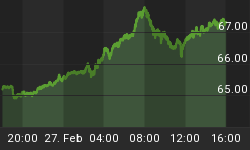As the Australian and US booms rolls on some 'forecaster', particularly on the net, are once again drawing historical analogies, warning that we risk a financial collapse that could bring on a depression every bit as bad as the 1930s. These forecasters know as much about the Great Depression as I do about brain surgery. Unfortunately, journalists' ignorance of economic history is massive.
As we all know, ignorance never stopped journalists from expressing their opinions, especially when it comes to economics. This brings me to Alan Wood, The Australian's economics commentator who wrote about the dismal fate of the "US economic forecasting industry" that flourished in the 1920s (Dangerous complacency increases investors' appetite for risk, 22 January 2005). It was their "failure to see the depression coming [that] put them out of business," wrote Mr Wood.
Relying on J. K. Galbraith's The Great Crash 1929 Wood relates how Harvard Economic Service's forecasts failed to warn business of the impending depression. Even in November 1929 it declared "a severe depression like that of 1920-21 is outside the range of probability. We are not facing protracted liquidation." (Galbraith). The preceding, according to Wood, is "a prudent reminder of the fallibility of forecasts at a time of the year when the voices of economic and market prognosticators are loud in the land." But is it? Any journalist who relies on Galbraith's account of the "Great Crash" deserves the sack. His book is a shallow and misleading work that lacks any permanent value.
(The classic work is Murray N. Rothbard's America's Great Depression, Richardson & Snyder, New York City. There is also Benjamin M. Anderson's Economics and the Public Welfare, LibertyPress, Indianapolis 1979. Then there is Amity Shlaes' The Forgotten Man: A New History of the Great Depression, Harper Collin 2007).
What our economic pundits do not know is that during the ‘20s some economists did warn that a severe depression was unavoidable. In the summer of 1929, for instance, Ludwig von Mises refused an important job at the Kreditanstalt Bank because, as he told his fiancé, "A great crash is coming, and I don't want my name in any way connected with it." (Margit von Mises My Years with Ludwig von Mises , Arlington House, 1976, p. 31).
Mises had been warning for years that the central banks' loose monetary policies would bring on a depression. Likewise, Friedrich von Hayek warned that the US economy was heading for a crash. Writing for the Austrian Institute of Economic Research Report, February 1929, he successfully predicted that "the boom will collapse within the next few months." Hayek were no alone in their dire warnings. Roger Babson, a well-known Boston financial adviser, was warning investors in September 1929 of an imminent crash. E. C. Harwood, founder of the American Institute for Economic Research, and Benjamin M. Anderson, chief economist at Chase National Bank, were also warning that a crash was unavoidable.
The brilliant Mr Keynes was not so prophetic. Felix Somary, a Swiss banker, related how Keynes had approached him in the mid-20s for stock recommendations. Somary, who subscribed to the Austrian School of economics, refused to give him any, warning that a speculative bubble was emerging. Keynes confidently replied: "There will be no more crashes in our lifetime." The financial collapse apparently did nothing to dent his self-confidence. (Cited in Dissent on Keynes, edited by Mark Skousen, Praeger, 1992, p. 163).
Once the depression was underway Keynes still hailed the price stabilization scheme that caused it as a "triumph." When it suited him, Keynes' conceit apparently left him unfazed by mere facts. On the other hand, D. H. Robertson who had been a supporter of the Fed's monetary policy began to have serious doubts about it after the depression stuck.
It is therefore not a question of unsound forecasting but of unsound economics. Under the influence of Irving Fisher virtually the whole of the American economics profession had fallen prey, and still has, to the fallacy that a stable price level means there is no inflation. (Sir Ralph Hawtrey was one of the guiding lights of this fallacy in England). Unfortunately the same situation prevails in Australia. The Austrians, however, explained in detail how trying to stabilise the price level will actually destabilise the economy and bring on the very depression the policy was designed to avoid.
According to the Austrians the Fed's credit expansion would trigger a speculative boom, which it did; eventually the Fed would be forced to apply the monetary brakes, which it did in December 1928 when it froze the money supply; this would cause malinvestments created by the credit expansion to start emerging by about the middle of the 1929, which is exactly what happened; the bubble would then quickly burst and the economy would go into a fully fledged depression -- the rest, as they say, is history.
Yet some 80 years later we are still being told that economics failed to predict the Great Depression, despite the historical fact that a group of economists succeeded where the mainstream forecasters failed. Widespread ignorance of this fact among those who should know better is an intellectual scandal.
Unfortunately Brookesnews is the only Australian publication in which you can find this knowledge. You will certainly never find it in the mainstream media.















